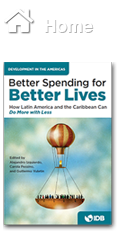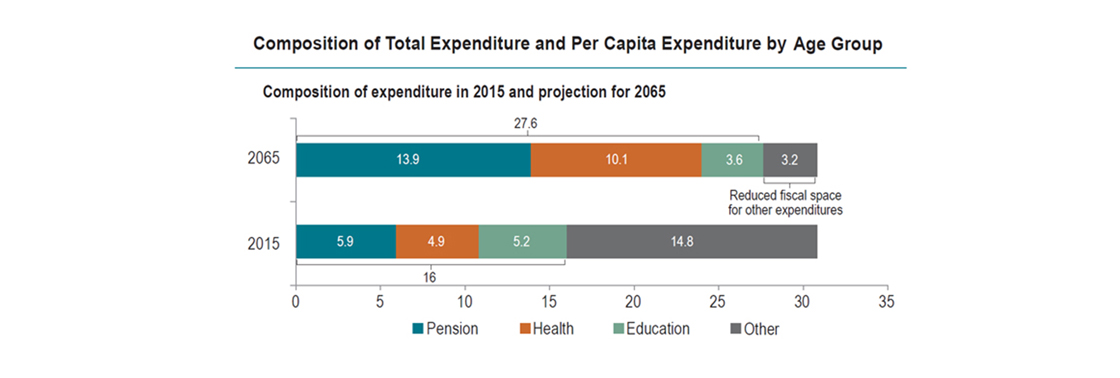Latin American countries, whose institutional quality typically falls on the low side of the spectrum, tend to reduce capital expenditure in bad times and increase current expenditure in good times, something that industrial countries don’t do on average.
Spending and the Cycle
(Chapter 2)
This chapter evaluates how governments in Latin America and the Caribbean spend over the business cycle. Economists preach the importance of so-called countercyclical spending policies. According to basic Keynesian precepts, countercyclical spending involves spending less in good times (to cool off the economy and allow the government to increase its savings thanks to the greater fiscal revenue collected from a larger tax base) and expanding spending in bad times (to mitigate recession and speed up recovery). Naturally, countercyclical spending policies help stabilize output fluctuations. By contrast, procyclical spending policies, which increase spending in good times and cut it in bad times, tend to amplify output fluctuations, creating large social costs, especially affecting the most vulnerable segments of the population. Much like individuals and families, governments cannot continually increase spending in good times (as fiscal revenues increase) and further increase spending in bad times (to cope with recession) without jeopardizing the sustainability of sovereign debt. Read more.









